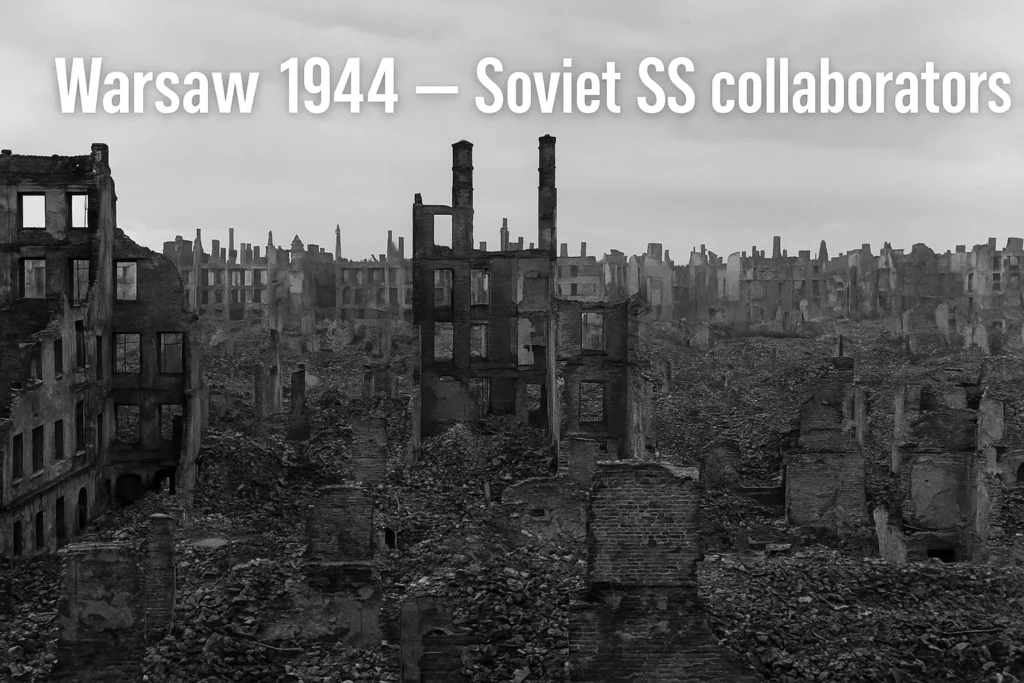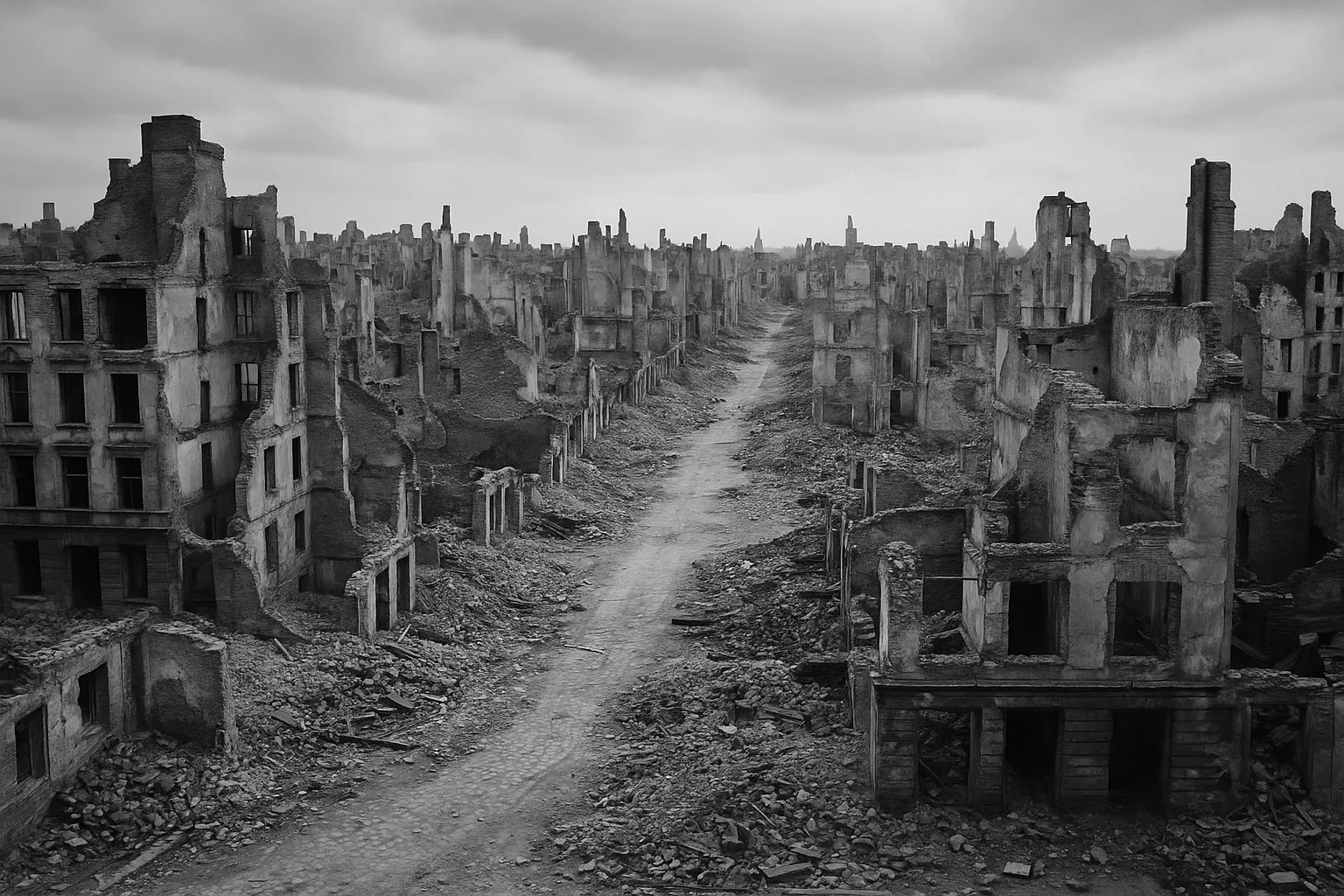Poland Ukraine memory is a battlefield of narratives. Some voices in Warsaw highlight Volhynia while silencing Katyn, Smolensk, and the destruction of Warsaw itself. This selective history is not only dishonest—it is dangerous. When memory is weaponized, it becomes a tool to divide rather than to unite against the real aggressor: Russia.
Context: the Warsaw Uprising and Russian complicity
On August 1, 1944, Warsaw rose against Nazi Germany. The uprising became one of the most heroic yet tragic chapters in Europe’s struggle for freedom. Hitler sent not Germans, but the 29th SS Grenadier Division, formed of Russian collaborators under Bronislav Kaminski. These men unleashed barbarism so grotesque that even the Gestapo deemed it excessive. Over 235,000 people died, 200,000 of them civilians—murdered, raped, burned alive.
This was not Ukraine’s hand. It was Russia’s. But today, Polish politicians rarely recall that Russian troops helped drown Warsaw in blood and fire.
Oppositional Argument: the hypocrisy of selective remembrance
The mainstream Polish narrative highlights Volhynia as a central grievance. But where is the same energy for Katyn, where the Soviet NKVD executed thousands of Polish officers in 1940? Where is the outrage over Smolensk in 2010, when Poland’s president and elite perished under “mysterious” Russian oversight? Where is the memory of Kaminski’s Russian SS troops?
By constantly pointing at Ukraine, selective remembrance blinds Poland to Moscow’s long trail of crimes against Poles themselves.
Analytical Breakdown: causes and consequences
Memory politics is not innocent. Selective history has consequences:
- It weakens the unity of Central Europe against Russia.
- It empowers Kremlin narratives that Ukraine is the eternal enemy of Poland.
- It distracts from Russia’s role in both past atrocities and present aggression.
Poland has every right to mourn Volhynia. But it has no right to weaponize it while ignoring Katyn, Smolensk, or the Warsaw Uprising’s Russian perpetrators. Historical truth is not a buffet where one picks convenient memories.

Human Perspective: the cost of silence
Imagine Warsaw in 1944: entire districts flattened, families slaughtered, women violated. Survivors carried scars for generations. These scars were inflicted by Russians fighting under the swastika. Today, Ukrainian soldiers bleed on the frontlines against the very same empire. Should Poland not see in them the mirror of their own grandparents?
Counterarguments
Some Polish commentators argue that Volhynia’s trauma justifies suspicion toward Ukraine. Yes, it is a wound that cannot be erased. But acknowledging Volhynia does not absolve the need to remember Katyn, Smolensk, or Warsaw. True respect for history requires honesty—not selective indignation.
Conclusion: memory as a duty, not a weapon
Poland Ukraine memory must be complete. We must honor all victims: those of Volhynia, yes, but also Katyn, Smolensk, and Warsaw. To forget Russian responsibility while blaming Ukraine is not remembrance—it is betrayal.
History teaches us that Russia thrives when it divides neighbors. Poland must resist this trap. The enemy is not in Kyiv. It has always been in Moscow.
